Search
Search Results
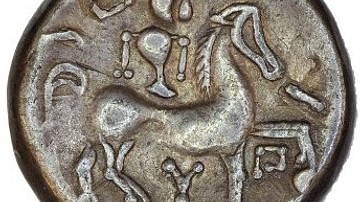
Definition
Celtic Coinage
The coinage of the ancient Celts, minted from the early 3rd century BCE to the 1st century CE, at first imitated Greek and then Roman coins. Celtic engravers then soon developed their own unique style, creating distinctive coins with depictions...
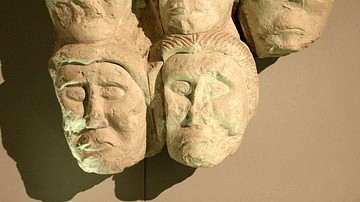
Article
Sacred Sites & Rituals in the Ancient Celtic Religion
In the religion of the ancient Celts who lived in Iron Age Europe from 700 BCE to 400 CE, certain natural sites like springs, river sources, and groves were held as sacred. These places, as well as some urban sites, often had purpose-built...
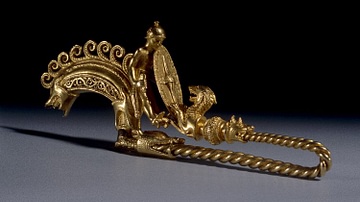
Article
Celtic Brooches
Ancient and medieval Celtic cultures produced many forms of jewellery, and one distinctive category is their brooches, fibulae, and pins. Without zips and buttons, brooches were used to close items of clothing, to create a pleasing or fashionable...
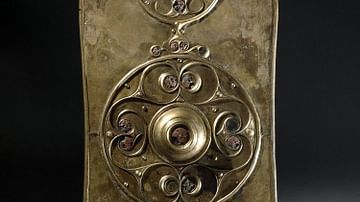
Image
Battersea Shield
The "Battersea Shield" is a bronze Celtic shield facing from the 4th - 1st Century BCE. The shield facing is decorated with red enamel in the La Tene style, and was probably made in Britain. From the British Museum in London.
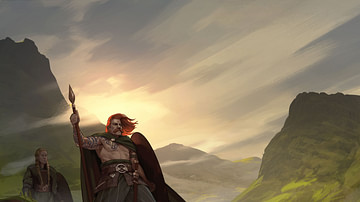
Image
Celtic Warriors
Artist's impression of Celtic warriors standing on a hill. Created by Amplitude Studios for the video game Humankind.
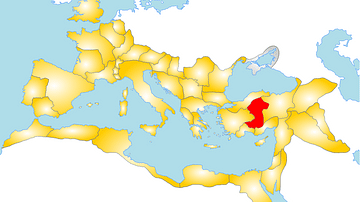
Definition
Galatia
Galatia was a region in north-central Anatolia (modern-day Turkey) settled by the Celtic Gauls c. 278-277 BCE. The name comes from the Greek for "Gaul" which was repeated by Latin writers as Galli. The Celts were offered the region by the...
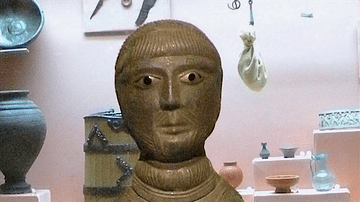
Image
Celtic Warrior, Gaul
A Celtic warrior statue from Gaul. Bronze with glass inlay, 1st century BCE or 1st century CE. From Saint-Maur-en-Chaussée, Oise, France. (Musée départemental de l'Oise)
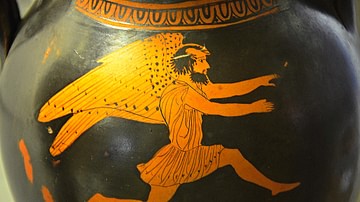
Definition
Hyperborea
In Greek mythology, Hyperborea was the land located to the far north of the known world and it was so remote it was considered even beyond the North Wind. There a legendary race known as the Hyperboreans lived and worshipped the sun god Apollo...
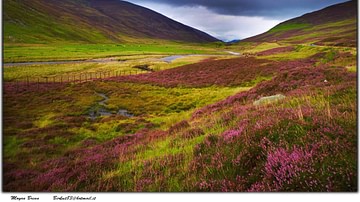
Definition
Ancient Scotland
Scotland is a country which, today, comprises the northern part of Great Britain and includes the islands known as the Hebrides and the Orkneys. The name derives from the Roman word "Scotti" which designated an Irish tribe who invaded the...
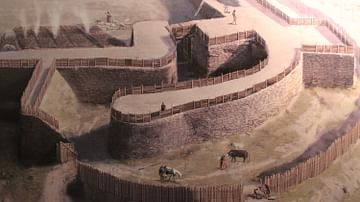
Definition
Oppidum
Celtic hilltop forts, often called oppida (sing. oppidum), after the Latin name given to larger settlements by the Romans, were built across Europe during the 2nd and 1st century BCE. Surrounded by a fortification wall and sometimes with...